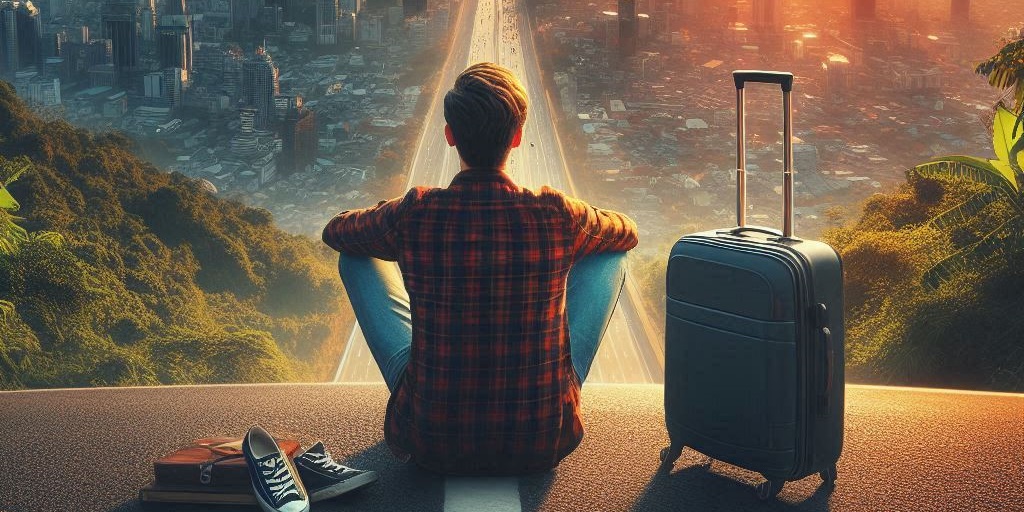Traveling solo can be one of the most liberating and enriching experiences in life. Whether you’re looking for self-discovery, the freedom to create your own itinerary, or the thrill of exploring new destinations, solo travel offers a unique opportunity to step outside your comfort zone.
Read More: Exploring the Hidden Gems of Europe: Off the Beaten Path Destinations
However, without the safety net of a travel companion, it’s important to take some precautions to ensure your journey is both safe and enjoyable. Here are some top tips and tricks for solo travelers to make the most of their adventures.
1. Research Your Destination Thoroughly
Before setting off on your solo adventure, it’s essential to do comprehensive research about your destination. Learn about the local customs, culture, and social norms, as well as the best areas to stay and potential risks. Understanding the lay of the land will not only help you feel more confident but also ensure that you avoid any surprises.
Check for travel advisories and warnings issued by your government or other credible sources, especially if you’re visiting a country with political unrest or safety concerns. Pay attention to transportation options, the local language, and the currency, and familiarize yourself with key emergency numbers and local embassies or consulates.
2. Plan Ahead, But Stay Flexible
Having a solid plan is crucial when traveling solo, but leaving room for spontaneity can lead to some of the most memorable experiences. Start with an itinerary that covers your accommodation, transportation, and key activities, but don’t over-schedule. Give yourself the flexibility to explore places you discover along the way or take a detour based on a local’s recommendation.
If it’s your first time traveling alone, it may help to book your first few nights’ accommodation in advance, along with major transportation like flights or trains. Afterward, leave some days open for unplanned adventures—whether it’s taking a local cooking class, going on a hike, or simply relaxing in a café and people-watching.
3. Pack Light and Smart
When you’re traveling solo, you’ll have to carry everything yourself, so packing light is key. Stick to the essentials, focusing on versatile clothing that can be mixed and matched, and leave room for souvenirs or things you pick up along the way.
A good rule of thumb is to pack enough clothes for a week, even if you’re traveling longer. Look for accommodations with laundry facilities, or pack a small bag of laundry soap for quick washes in the sink.
Other essential items include:
- A first-aid kit: Include band-aids, pain relievers, any prescription medications, and anti-diarrheal medicine.
- A travel lock: Great for securing your luggage or locking up valuables in a hostel locker.
- Copies of important documents: Keep copies of your passport, visa, and travel insurance in case you lose the originals.
- A portable charger: You don’t want to be caught without a working phone in case of an emergency.
4. Stay Connected
Although solo travel offers a chance to disconnect from the daily grind, staying connected is crucial for your safety and peace of mind. Keep family or friends updated on your whereabouts by regularly checking in with them.
Share your itinerary, accommodation details, and any changes to your plans. Apps like Google Maps, WhatsApp, or Life360 can help you stay connected and allow loved ones to track your movements.
Additionally, consider purchasing a local SIM card or an international phone plan to ensure you always have access to the internet and can make calls. Not only will this help you navigate new places, but it can also be a lifeline in case of an emergency.
5. Choose Accommodations Carefully
Where you stay can greatly impact your solo travel experience. Opt for accommodations that prioritize safety, have good reviews, and offer 24/7 front desk service. Hostels are popular with solo travelers because they provide a social atmosphere where it’s easy to meet fellow travelers, but you should still research your hostel thoroughly and opt for those that have secure lockers and good ratings on safety.
If you prefer privacy, Airbnb or small boutique hotels are great alternatives. Some accommodations even offer women-only dorms or female-friendly hostels, which can be ideal for solo female travelers.
Wherever you choose to stay, consider the location carefully. Staying in a central, well-lit area close to public transportation, restaurants, and major attractions can give you peace of mind when exploring.
6. Stay Alert and Trust Your Instincts
When traveling alone, it’s essential to stay alert and trust your instincts. If something feels off—whether it’s a person, a situation, or a place—remove yourself from it. It’s better to be cautious than to put yourself in unnecessary danger.
Avoid distractions like wearing headphones or using your phone excessively in unfamiliar or crowded areas, as it can make you an easy target for pickpockets or scammers.
Be aware of local scams and common tricks used against tourists. Researching these beforehand can help you avoid situations like overcharging taxis, unsolicited offers of help, or being invited to a seemingly friendly “tour.”
7. Be Confident and Blend In
Solo travelers, especially in unfamiliar places, can sometimes stand out. Blending in with the locals can help you avoid unwanted attention and make you feel more comfortable. Dressing like the locals, learning a few key phrases in the local language, and being mindful of cultural differences will help you integrate and navigate the environment with ease.
Confidence is also key. Walking with purpose and carrying yourself assertively can make a significant difference in how you’re perceived. Even if you’re unsure of your surroundings, don’t let it show. Act like you belong, and you’ll likely avoid drawing attention to yourself.
8. Be Social, But Cautious
One of the joys of solo travel is the opportunity to meet new people from all walks of life. Whether it’s fellow travelers, locals, or even tour guides, socializing can enrich your experience and create lasting memories. However, always maintain a level of caution when meeting new people, especially if you’re traveling alone.
When interacting with strangers, avoid giving away too much personal information, like where you’re staying or that you’re traveling alone. Trust your intuition—if someone makes you feel uncomfortable, it’s okay to walk away or make an excuse to leave.
To safely meet other travelers, join group tours, attend local events, or stay at social hostels. Joining online travel communities like Couchsurfing or Meetup is another great way to connect with like-minded travelers while still staying cautious.
9. Be Prepared for Solo Moments
Traveling solo means that there will be times when you’re completely on your own—perhaps in a quiet café, at a scenic lookout, or during a meal. It’s important to embrace these solo moments and use them as opportunities for reflection, relaxation, and self-discovery. Don’t be afraid to dine alone, explore on your own, or simply sit with your thoughts.
If loneliness does creep in, keep in mind that it’s natural, and there are many ways to stay connected. Use downtime to journal, take photos, read a book, or strike up a conversation with locals or fellow travelers. Solo travel often fosters self-reliance and confidence, making it a rewarding experience that teaches you more about yourself.
10. Take Care of Your Health and Well-Being
Solo travel can be physically and mentally demanding, so it’s important to take care of yourself. Prioritize getting enough rest, staying hydrated, and eating balanced meals. Carry snacks, especially if you’re hiking or visiting remote areas where food may not be easily accessible.
Make sure you have travel insurance that covers both medical emergencies and trip cancellations. While no one wants to think about getting sick or injured while traveling, it’s always better to be prepared. If you do have any health concerns while abroad, knowing where the nearest hospitals, pharmacies, or clinics are located will give you peace of mind.
Conclusion
Solo travel is an empowering and transformative experience, offering the freedom to explore the world on your own terms. By following these tips and tricks, you can ensure that your journey is safe, enriching, and memorable.
Whether you’re exploring bustling cities or tranquil countryside, solo travel allows you to connect with new cultures, discover hidden gems, and most importantly, connect with yourself.







